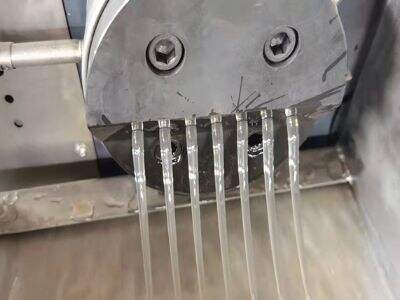Understanding the rPET compounding challenges
Processing compounding with rPET can be very challenging. rPET is short for recycled polyethylene terephthalate (the plastic made from recycled used plastic bottles). Recycling PET means doing a compounding: mixing the rPET with other materials to obtain products
Decontamination of the recycled material for rPET compounding is one of the more difficult issues. Possible contaminants can decrease the final quality to provide a less durable product. Inject it into a demand for more rPET and higher quality rPET means that compounding houses like MOOGE need to put considerable resources behind their PET Recycling Line to enable the use of the best possible processing fraction
Sustainability Compatible Materials Innovation in compounding
Thankfully, over the last several years, many of these ecologically efficient material advancements have been made for compounding. Some companies, like MOOGE, have begun to dabble in bio-based or recycled materials that may be more environmentally friendly. These materials will not only healthier for the planet but also enhance the quality of the final product
Among these we can mention the use of bio-based additives in the compounding step. Since manufactured from plant and algae-based materials, these ingredients are a much less environmentally detrimental process than standard chemical additives. This plastic recycling machine allows the companies to utilize less oil-based materials and lower their carbon footprint
rPET Compounding Optimization Strategies
In the compounding of rPET, sustainability challenges can be addressed by driving efficiency into their operations. Companies like MOOGE have taken an approach that has proven successful: investing in cutting-edge equipment capable of processing rPET more rapidly and effectively. This saves both energy and resources in the production process, as well as increasing the throughput of the compounding system
The environmental challenges in rPET compounding are
It is the single major concern in the compounding industry that can be easily met by adopting the use of limestone. MOOGE is working tirelessly to address these concerns with the help of Sustainable Practices and Processes. One way is turning to renewables to power their compounding equipment, for example via solar or wind energy production
Case studies of companies surmounting sustainability challenges in compounding operations
While rPET compounding can be challenging, sustainability obstacles in the process have been cleared by many businesses. The success of companies like MOOGE indicates that given the right efforts and creativity, it is completely within our capability to create great products in an environmentally responsible way
MOOGE success story MOOGE also has a new compounding process that uses 100% recycled materials. MOOGE has been able to achieve the quality levels that their products require but with an advanced level of sustainability by only utilizing recycled materials. It also increases their social life and this is equally beneficial to other companies in the industry as well
In summary, the profession of overcoming sustainability obstacles in pet recycling machine poses a stiff challenge to the plastic and allied sciences — to make changes happen and trigger different experiences within our environment. MOOGE is at the forefront of many an effort to sustainable product using bio-based material, effective processes or green energy sources etc. Solving these challenges help make a brighter compounding future possible


 AR
AR
 BG
BG
 HR
HR
 CS
CS
 FR
FR
 DE
DE
 EL
EL
 HI
HI
 IT
IT
 JA
JA
 NO
NO
 PL
PL
 PT
PT
 RO
RO
 RU
RU
 ES
ES
 TL
TL
 ID
ID
 SR
SR
 SK
SK
 SL
SL
 UK
UK
 VI
VI
 SQ
SQ
 HU
HU
 MT
MT
 TH
TH
 TR
TR
 FA
FA
 MS
MS
 GA
GA
 BE
BE
 MK
MK
 HY
HY
 AZ
AZ
 KA
KA
 HT
HT
 BN
BN
 HMN
HMN






